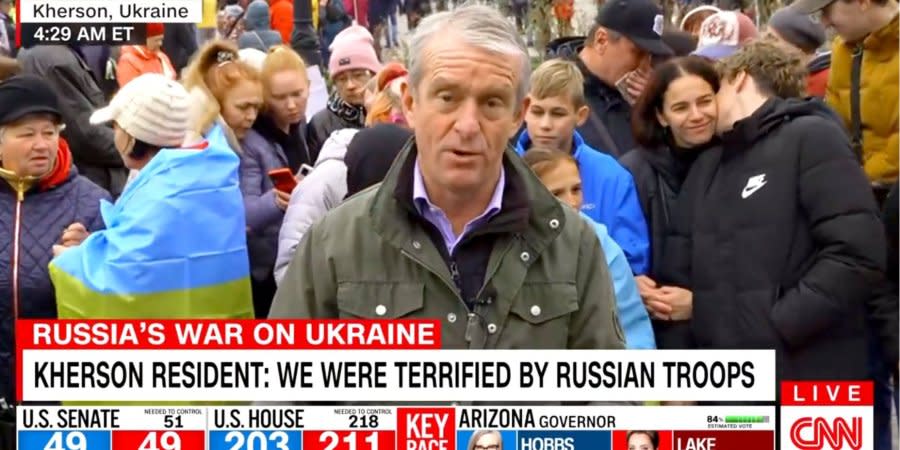CNN and Sky News journalists losing accreditation over reporting from Kherson sparks controversy

- Oops!Something went wrong.Please try again later.
The ministry said that foreign journalists ignored existing restrictions and didn’t receive permission to work in Kherson – for which they had their accreditations revoked on Nov. 13.
Read also: Journalists track down Russian military personnel linked to atrocities in Kyiv Oblast
Ukrainian photographer Dmytro Larin also faced similar sanctions, according to editor-in-chief of Ukrainska Pravda, Sevgil Musaieva. She believes that the decision was made by the team from the Office of the President of Ukraine.
“Someone didn’t like that the journalists were the first to arrive at the scene (in Kherson), and not (Ukrainian) President (Volodymyr Zelenskyy),” Musaieva said in a Facebook post on Nov. 14.
Read also: President Zelenskyy makes historic visit to newly liberated Kherson
“True, because we are guided by the interests of society and our audience. And it will always be this way. CNN and Sky News report on the war and keep Ukraine in the news, securing the empathy of people towards us from different parts of the world. Revoking their accreditation is shooting yourself in the foot.”
At the same time, Ukrainian journalist and war correspondent Taras Berezovets noted that such an approach to foreign media has become a “red line.”
“I must say right away that this situation is not typical for the army,” Berezovets said said on his Facebook page on Nov. 14.
“During the (September) Kharkiv counteroffensive, there was a correct ‘algorithm’ for working with the media. Moreover, the leadership of the General Staff has nothing to do with the direct ban on the media’s work. We are dealing with a classic case of misguided bureaucratic overreach.”
Read also: Georgian journalist the on influx of Russians dodging mobilization
Ukraine’s parliamentary Ombudsman Dmytro Lubinets also drew attention to the situation, calling the ban “unacceptable.”
He agrees that control over media access in times of war is necessary as an international standard. But in this case, communication with the Central Directorate of Civil-Military Cooperation under the General Staff with international media turned out to be “lacking.”
“There is a need to reconsider this decision as well as the approach of civil-military cooperation with the media,” Lubinets said in a Telegram post.
Read also: Russian threats to blow up Kakhovka dam are “crazy” and nuclear strike “impractical”, says Reznikov
“I petitioned the Minister of Defense of Ukraine Oleksiy Reznikov. The world must know the truth about the crimes of the Russian Federation! And journalists should be able to spread this truth!”
Zelenskyy’s office is yet to comment on the situation.
Read the original article on The New Voice of Ukraine

